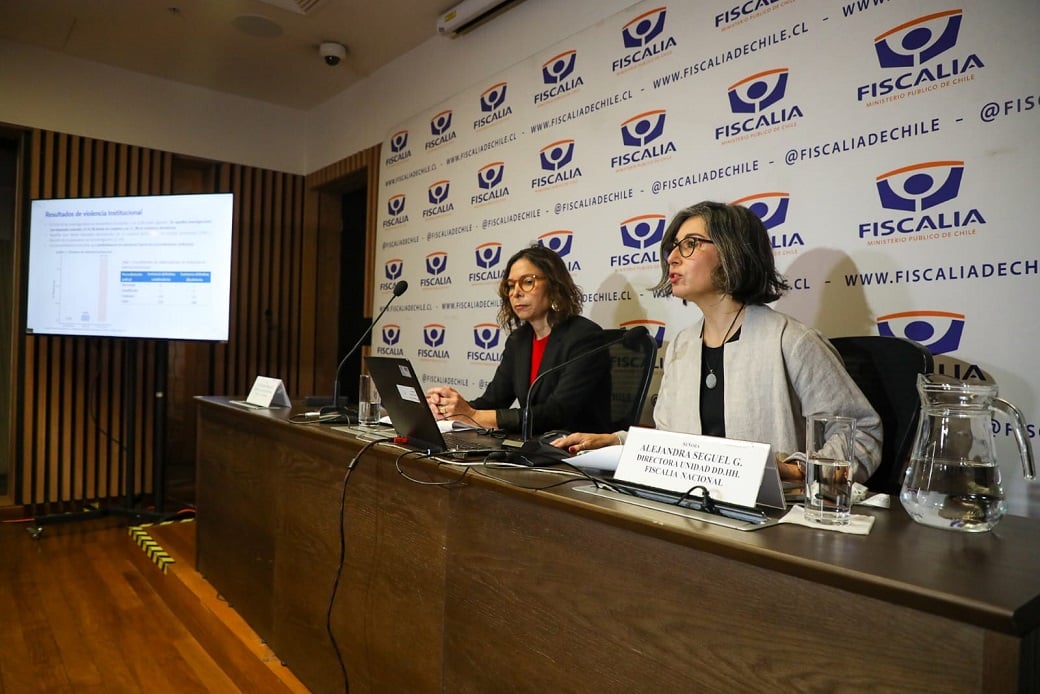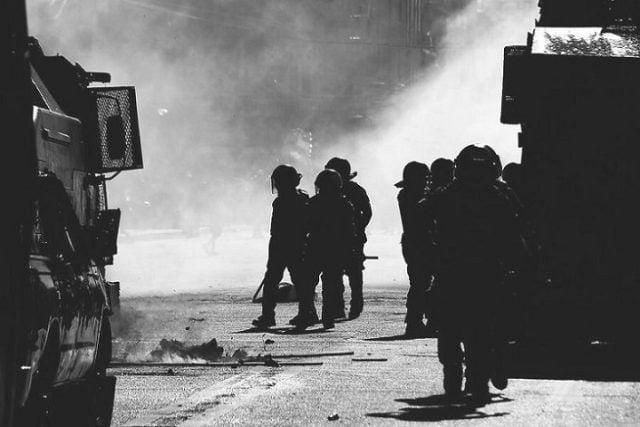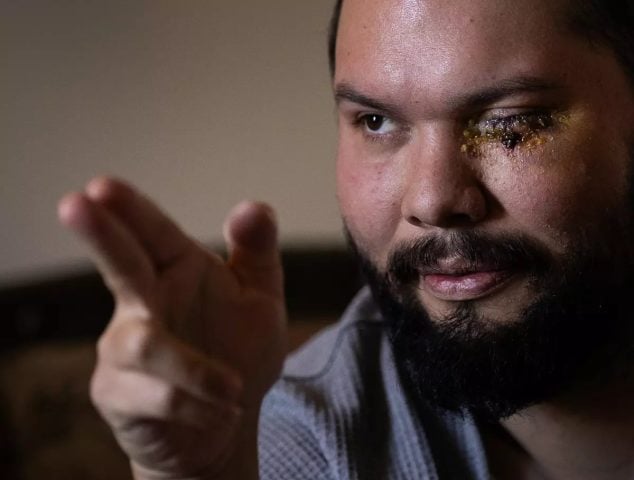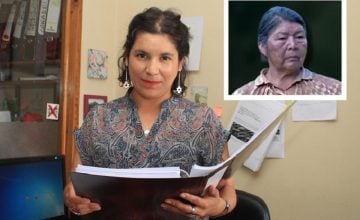Original article: 18-O: A seis años del estallido social, Fiscalía confirma 464 víctimas de trauma ocular y 30 fallecidos
Prosecutor’s Office Reports Police Violence as Leading Crime of 18-O, with 464 Eye Injury Victims

Image: Ana María Morales, Manager of Studies, and Alejandra Seguel, Director of the Human Rights Special Unit of the National Prosecutor’s Office (Photo: National Prosecutor’s Office)
A groundbreaking report from the National Prosecutor’s Office, released this Friday, quantifies the impact of the 2019 social upheaval in Chile, revealing a total of 20,727 victims and over 35,000 recorded offenses from October 18, 2019, to March 31, 2020. The Statistical Report on the Social Outburst is based on the analysis of 32,901 legal cases, providing an official systematization of this period of crisis for the first time.
View: Statistical Report on the Social Outburst (National Prosecutor’s Office)
The document details that institutional violence, perpetrated by state agents, was the most recurrent criminal activity, accounting for 34.1% of the total, translating to 12,002 crimes and 11,183 victims. Following in frequency were looting and property crimes (31.7%) and public disorder (22.7%). Geographically, nearly half of the crimes (46.9%) were concentrated in the Metropolitan Region.
Among the most severe figures, the prosecutor’s report, cited by the Associated Press and echoed by Los Ángeles Times, highlights that 30 individuals lost their lives during the protests. Of these deaths, seven were due to state violence, fourteen resulted from fires, and nine occurred amid public disorder, constituting the most violent unrest since the return to democracy.
One of the most emblematic consequences of the repression was eye trauma. The Public Prosecutor’s Office identified 464 victims who suffered these injuries, of which 230 experienced some degree of vision loss, including two cases of complete bilateral blindness. The study specifies that 84% of these ocular injuries were caused by projectiles.
Despite the severity of the events, the judicial response reveals significant challenges. Of the thousands of reports of institutional violence, only 219 convictions were registered. In cases of Human Rights violations with known defendants, the conviction rate barely reached 14.3%, reflecting the difficulties in identifying those responsible.
The social outburst of 2019, driven by demands for greater equality, marked a turning point in Chile’s recent history. Six years after the massive protests that left this trail of victims, the report reveals the magnitude of the crisis and the ongoing challenges in terms of justice and reparations.










